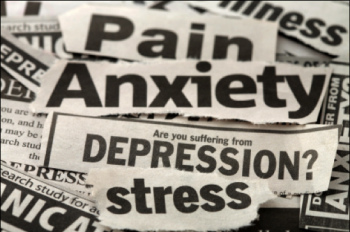By Jasper Moedt (The Cascade) – Email
Print Edition: June 5, 2013
Now that most of us are well into our summer semester it easy to forget the pressures and stress that comes with a university education. It is easy to push aside the stresses of the fall and winter as the summer sun shines; most will ask – why worry about it now?
The truth is that mental health works much like physical health. You want to be physically strong? Go lift weights or go train. Same goes for mental health. You want to be able to cope with the many stressors of a full course load along with the many other commitments that students deal with? Training for that begins over the summer months.
As students we want to build our emotional resilience, or our ability to adapt to change. The summer months are a great time to look at ways to increase our emotional resilience so that by the time fall rolls around we are better prepared for the challenges ahead.
Building emotional resilience is not something that just happens overnight. Think of it as comparable to achieving a new personal best on a run; it takes a commitment of time and training. Although there are many complicating factors in becoming a more resilient person there are a few specific traits that are especially important for students.
The first (and often most important) step is to become aware of your emotional state and the stressors in your life. Often in the midst of a hectic semester we can simply feel overwhelmed without being able to identify specific causes. Without the ability to recognize what is bothering us we lose the power to make positive changes in our lives. Practicing the ability to detect stressors during the summer is extremely beneficial; generally over summer break we have fewer stressors and it is a good starting place to practice identifying specifics.
Secondly it is important for any student to develop an internal locus of control, or the feeling that you directly control the outcome of your life and not vice versa. With an internal locus of control comes the feeling of self-control. You are no longer at the mercy of external events; by embracing this mindset an individual commits to the fact that the only force that has control of the outcome of their life is themselves. Working on developing this mindset is a labour of time. Treat every problem with a mindset of internal control. Frustrating boss or coworkers? How can you change the situation to make the relationship more bearable? Professor gives you a poor grade? How can you ensure that this situation does not occur again?
It all comes down to accepting that the outcomes in your life are in your control. If you want to see change you must acknowledge that you hold the power to fuel that change.
Building emotional resilience is a process that takes time and practice. It’s a slow process and it takes constant vigilance. The above techniques are important to start practicing while you have less stressors in your life. Different strategies in building emotional resilience work for different people. Awareness and practicing those coping strategies is the key to being able to deal with stress in a healthy manner.


